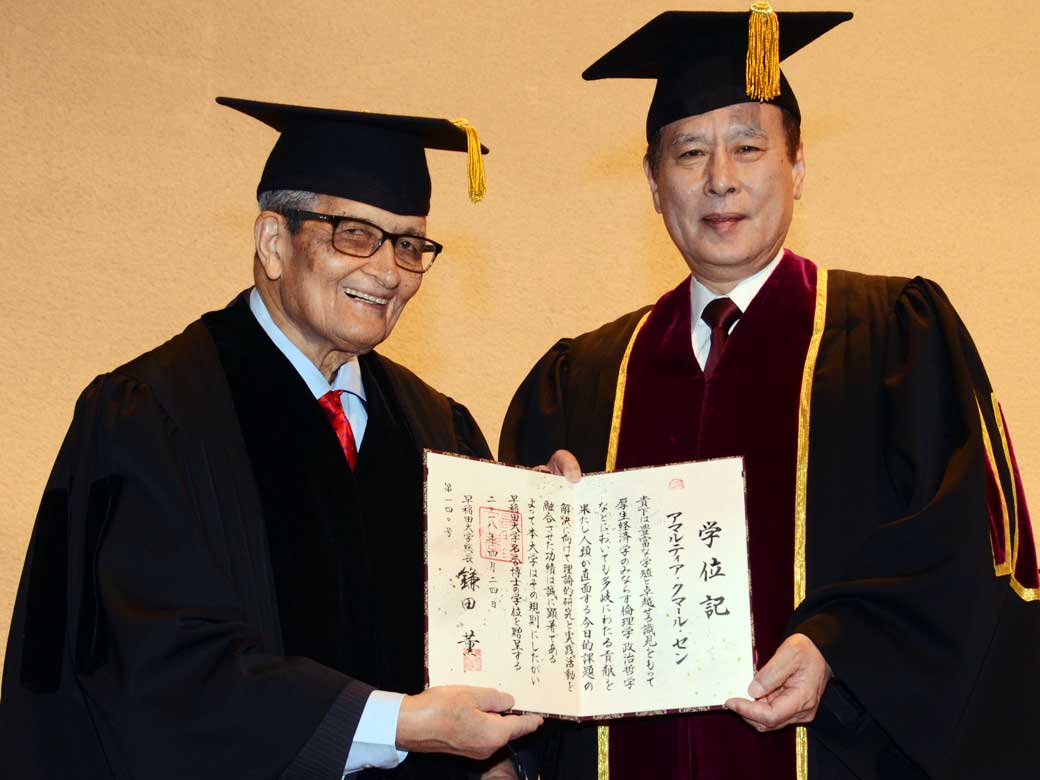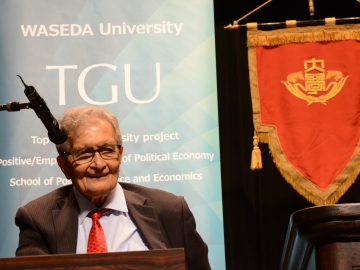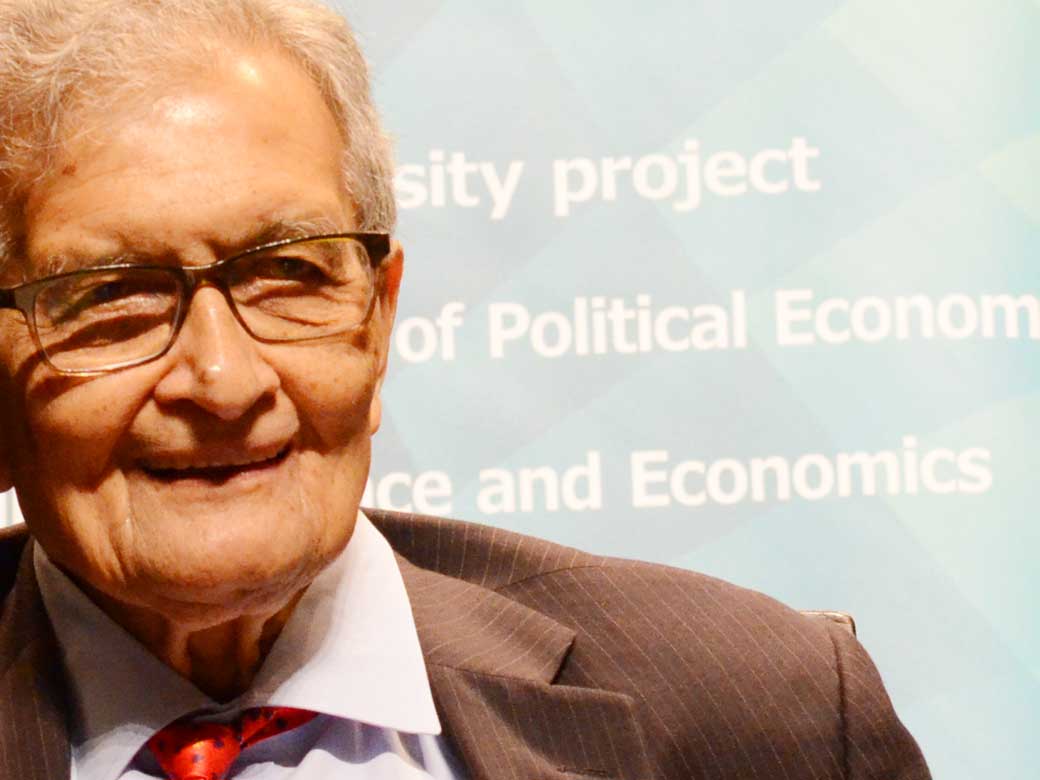Honorary doctorate conferred to Dr. Amartya Kumar Sen
Fri, May 11, 2018-
Tags
On April 24, Waseda University conferred the Degree of Honorary Doctorate upon Dr. Amartya Kumar Sen, the Thomas W. Lamont University Professor and Professor of Economics and Philosophy at Harvard University. The ceremony was held at Okuma Auditorium.

Dr. Amartya Sen (left) and President Kamata (right)
Dr. Sen is an economist who has made significant impact on the development of welfare economics. Through the application of social choice theory, he has explored ways to link pure theory with public policies in order to improve social welfare and find solutions to pressing global issues such as poverty, famine, and hunger. He was awarded the Nobel Prize in Economics in 1998 for his achievements, namely the re-establishment of the indexes for the measure of well-being known as the Human Development Index (HDI) in the United Nations Development Programme.
“Waseda students and faculty have been heavily influenced by Dr. Sen’s scholarship, and have integrated theoretical analysis and practical measures into their research in economics, ethics, political philosophy, legal philosophy, and regional studies to alleviate present-day concerns,” said University President Kaoru Kamata in his address, as he mentioned how Dr. Sen’s activities have been embodied in the education and research at Waseda.

Dr. Sen on human rights and freedom
In receiving the degree, Dr. Sen expressed his gratitude, saying, “The pursuit of enlightenment has in fact been a global phenomenon. Waseda University is an inheritor of this global heritage, drawing upon Asian traditions as well as the fruits of European enlightenment. The cultivation of wisdoms remains extraordinarily important today in the precarious world in which we live. I am very proud indeed of being able to claim that I am now part of an academic community of this great university.”
Nobel Prize recipient says, “Those who are in a position to help have obligations to human rights”
Following the conferral ceremony, Dr. Sen delivered a commemorative lecture on the obligations to human rights. He spoke on how the idea of human rights was formally introduced in legal thinking, and the different interpretations of human rights by philosophers such as Jeremy Bentham, Thomas Paine, and Mary Wollstonecraft. He then compared the human-rights approach to ethics to utilitarian ethics, stating that the former “grounds the ethical assessment on the importance of freedom rather than utility” and “relates the claims of freedom to obligations that others have to advance freedoms in general, rather than leaving the utility calculus to work through people’s personal morality.”
A human right entails substantial demands on other human beings who are in a position to help.
According to Dr. Sen, one of the reasons why freedom is valuable is because it makes sure by fair processes that “we are not being forced into some state because of constraints imposed by others.” To illustrate, he gave an example on how “the human right of not being tortured, which springs from the importance of being free from torture, goes with the affirmation of the need for others to consider what they can reasonably do to secure the freedom from torture at all.” He said, “A human right entails substantial demands on other human beings who are in a position to help,” and referred to a concept under Kantian ethics known as an imperfect obligation.
“Imperfect obligations are general duties of anyone in a position to help to consider what he or she can reasonably do in the matter involved. It is still possible that other obligations or non-obligational concerns may overwhelm the reason for the particular action in question, but that reason cannot be simply brushed away as being ‘none of one’s business.’ Imperfect obligations must not be confused with no obligations at all.”
Lastly, Dr. Sen closed his lecture by talking about how public reasoning (a shared framework for political and social deliberation which can be endorsed by any individual) becomes important in formulating human rights to determine its normativity and political/social relevance, saying, “A human rights approach to social ethics has to take note of the importance of such critical engagement ‘sans frontières (without borders).’”
YouTube video of the event
https://www.youtube.com/watch?v=_gw4DaCBb8c
Degree of Honorary Doctorate at Waseda University
An honorary doctorate is conferred to those who have achieved significant distinction is academia, culture, and other areas contributing to humanity. Waseda University has awarded 139 honorary doctorates thus far.














